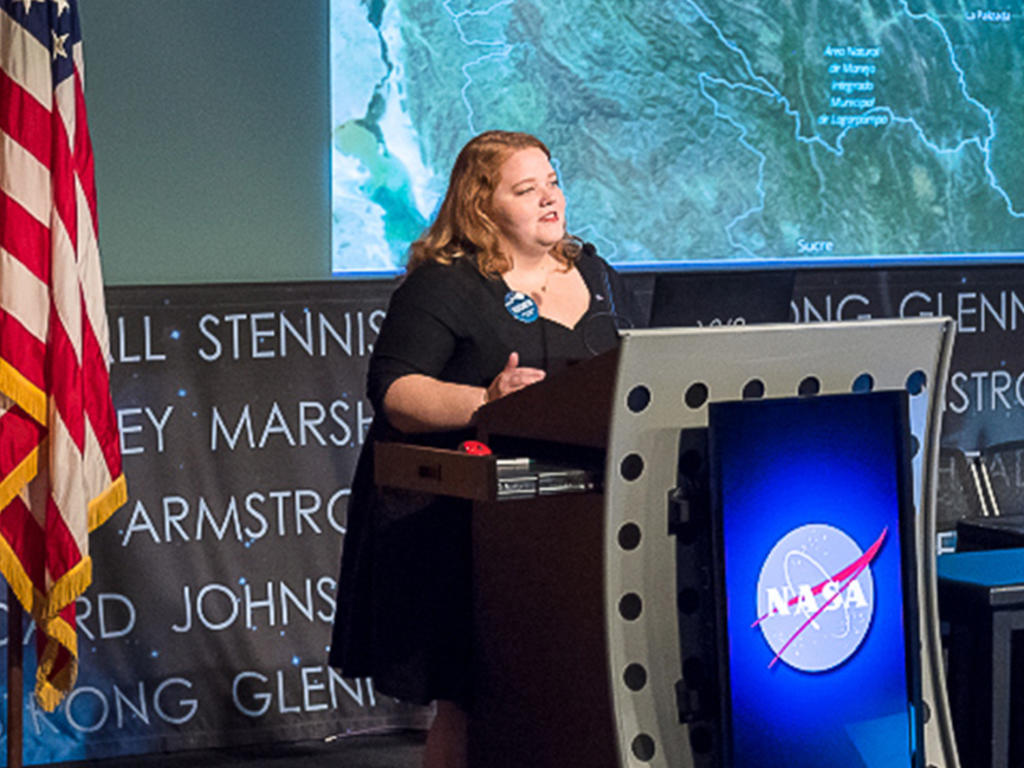When Elizabeth Hook ’11 started her first year at Rhodes College, she planned to study history and archaeology. However, her love of science inspired her to get involved in the Rhodes chapter of the Society of Physics Students (SPS). She eventually changed her major and graduated with a B.S. in physics. It was that degree and her involvement in SPS that led to her first job with the SPS national office in Washington, D.C.
She now works as outreach coordinator for Science Systems and Applications, Inc. at NASA’s Goddard Space Flight Center as part of the NASA Applied Remote Sensing Training Program. She supports 15-17 trainings a year, helping non-scientists in jobs like like firefighting, fishing, and disaster relief learn how to apply NASA satellite data into their work.
She says the willingness of the Rhodes physics department to support all majors, even those who are not planning to go into research or graduate work, has been vital in her ability to succeed in her profession. She credits the department for her ability to translate scientific ideas to non-scientists.
“The physics department culture at Rhodes leaned very strongly into students being able to communicate their research and work clearly to people with a variety of scientific literacy,” Hook says. “The expectation that students do that—and providing the support to enable students to do that—is much rarer than it should be.”
Hook, who recently won the NASA Earth Science Atmosphere Labs Award for Outstanding Performance in Outreach & Mentorship, is currently helping to develop a training program on responding to natural disasters. Her team is going to destroy a fictional town and look at how responders can use satellite data to help them make more efficient decisions. She says this experiment has important implications for responders, as climate change increases the risks of extreme weather events.
Hook also contributes to the LGBT advisory committee at Goddard. While she says being in a male- and heterosexual-dominated workforce can be “challenging,” she says she is grateful to have achieved success in her field.
“I think a lot of scientists have a perception that ‘sex, gender, and sexuality don’t matter to doing science.’ By not talking about it, you’re creating a space where it doesn’t matter. And while that’s better than outright discrimination, that’s also not how you build healthy, open, and inclusive work spaces that allow people to fully be themselves and do their best work,” explains Hook.
In many ways, her focus is on helping people accomplish their best work.
“I love being able to help people make better decisions in their work. All of NASA’s satellite data is freely available, but a lot of people don’t have the technical background to use it. Satellites can provide a really valuable perspective in a lot of work and our trainings are available globally for free,” says Hook.
“Being able to help make the program happen is rewarding. It’s also rewarding when people think of our materials as high quality and really helpful for people with non-technical backgrounds.”
